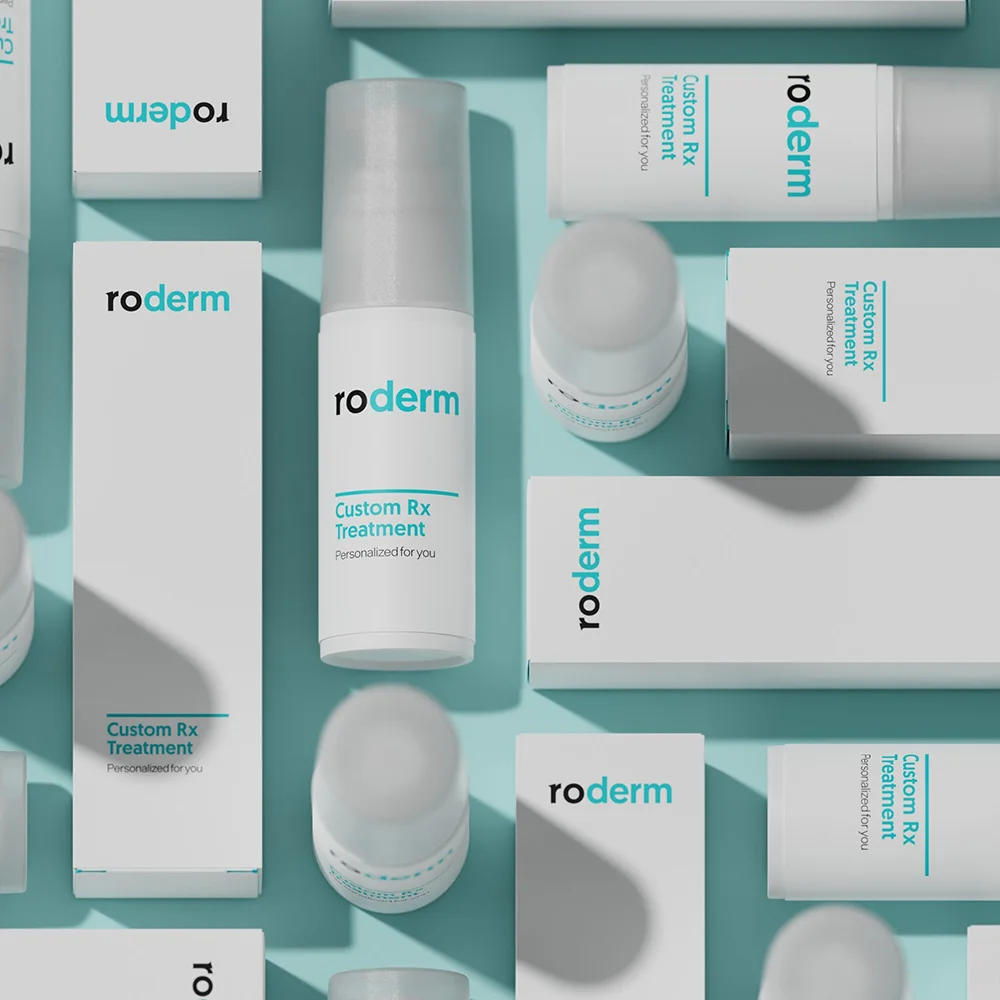Here's what we'll cover
Here's what we'll cover
Here's what we'll cover
For centuries, people have been concerned about aging. We are always searching for the next “fountain of youth” or new way to reverse aging. But is it even possible to reverse aging? Let’s look into what the research shows.
Is it possible to reverse aging?
You cannot wholly reverse aging—it’s a normal part of life. However, you may be able to slow it down and help prevent age-related diseases by adopting a healthy lifestyle. That includes habits like eating a healthy diet, wearing sunscreen every day, and exercising (Shanbhag, 2019).
All of these things can help slow down aging and create a more youthful appearance. Internally, these healthy habits can also ensure your biological age (how old your body seems) stays behind your chronological age (how many years you've been alive). In other words, they can help you look and feel younger than you are.
Let’s go into a bit more detail about what aging is, and potential steps to reverse aging.
What is aging?
Aging can be caused by a wide range of physical and psychological sources—like worrying about the economy for three months straight—but the underlying aging process is the same. Our body is made up of millions of cells. These cells continue to multiply repeatedly; however, a cell has a set amount of times it can multiply before it dies. So, as more cells get damaged throughout the body, you begin showing signs of aging (Flint, 2020).
Aging can be explained by looking at what is going on at the cellular level. Your chromosomes carry your DNA, the blueprints for your cells, and have special caps at the ends called telomeres. These telomeres protect your chromosomes. As your cells continue to multiply, your telomeres get shorter. When the telomeres get too short, they can no longer protect your DNA, and eventually, that cell dies. Think of this like your cells’ normal “wear and tear” after many cycles of dividing and replicating (Turner, 2019).
While aging happens to all of your body’s organs, your skin is an excellent visual example of how aging progresses. When you are young, your body has no problem repairing damaged skin cells. However, as you get older, the repair system is not as efficient as it once was—your skin gets thinner, loses collagen, and you start to see fine lines and wrinkles.
Cosmetically, wrinkles and fine lines aren't the only signs of aging, so tactics to reverse aging should address the complete picture. These other cosmetic markers of skin aging include hyperpigmentation, dark spots, sunspots, and uneven texture and tone. Since these can make you look older, addressing the different aging concerns may help you look younger.
Here are nine ways you may be able to fight back against aging.
1. Eat a healthy diet
It should come as no surprise that healthy eating can help you live longer. Numerous studies have shown that eating more fruits and vegetables, like in the Mediterranean diet, can lower your risk of heart disease, diabetes, brain disorders, and other medical conditions (Capurson, 2019). But can your diet help with the effects of aging?
Some studies suggest that following a Mediterranean diet may help prevent the onset of frailty and age-related diseases like dementia. Older people who adopt a Mediterranean diet seem to have a longer lifespan than those who follow a “western” diet. A “western” diet tends toward eating more fried and processed high sugar and carbohydrate foods, along with a higher intake of saturated fats. This western eating pattern may be a risk factor for developing medical conditions like diabetes and heart disease (Capurso, 2019).
A Mediterranean diet focuses on lean proteins, lots of fruits and vegetables, whole grains, and healthy fats, like olive oil and oily fish. These healthy fats often contain omega-3-fatty acids, which have their potential impacts on your health and aging. Some research shows that these healthy fats may protect you against heart disease, heart attacks, and strokes, but the data is not definitive. Animal studies suggest that omega-3-fatty acid supplements may slow aging and increase lifespan, but no human data supports this yet (Capurso, 2019).
Other benefits of the Mediterranean diet may include protection against the loss of muscle mass that often accompanies getting older, also called sarcopenia (Capurso, 2019). It may also help stave off age-related cognitive decline, dementia, and Alzheimer’s disease. The Mediterranean diet allows you to take in lots of antioxidants from fruits and vegetables—these foods may reverse aging by protecting your brain against inflammation that could lead to memory loss and other cognitive problems (McGrattan, 2019).
A recent literature review suggests that a whole-food, plant-based diet may prevent skin aging by maximizing the amount of antioxidants you get from your diet (Solway, 2020). While the research is far from conclusive, there seem to be more than enough reasons to incorporate a healthy diet into your lifestyle.
2. Limit calorie intake
Along with eating a healthy diet, calorie restriction may also affect aging. One way you can do that is by intermittent fasting—this is an eating strategy where you limit how many calories you take in by alternating between periods of eating and periods of fasting.
Research suggests that intermittent fasting may improve overall health, especially regarding medical conditions like obesity, diabetes, heart disease, and neurologic conditions like Alzheimer’s disease and Parkinson’s disease. Animal trials seem to show a longer life expectancy in some animals put on an intermittent fasting diet—but this has not been replicated in humans yet (de Cabo, 2019).
Scientists theorize that during fasting, your cells activate pathways that enhance your body's defenses against oxidative and metabolic stress, as well as processes that remove or repair damaged molecules. By doing all this, intermittent fasting may help combat some of the processes of aging (de Cabo, 2019).
3. Avoid smoking
Cigarette smoke contains thousands of harmful chemicals, and it can take its toll on your body, most visibly on your skin. These chemicals cause damage to skin cells and hasten the signs of skin aging. Smoking increases fine lines and wrinkles on your face, especially around your mouth and eyes. It also causes skin discoloration and uneven skin tones. Fortunately, quitting smoking can improve some of these changes (Krutmann, 2017).
4. Exercise regularly
Like adopting a healthy diet, exercise has known benefits with regards to improving your health. But it may also delay the cognitive decline that often comes with aging. Studies suggest that older adults who participate in an exercise regimen that includes both aerobic and resistance training may have improved cognitive function. Exercise may also protect against the development of dementia and Alzheimer’s disease (De la Rosa, 2020). More research is needed.
5. Apply sunscreen daily
You expose your skin to ultraviolet A (UVA) and ultraviolet B (UVB) rays when you are in the sun. Both kinds of UV rays cause damage to the skin, also called sun damage, through oxidative stress and the formation of free radicals. Many experts believe that up to 80% of the aging changes in your skin may actually be due to UV exposure and not just getting older.
Sun damage causes tell-tale signs of premature aging, like fine lines and wrinkles, dark spots (or age spots), spider veins, and an uneven skin tone. It also increases your risk of skin cancer. Applying sunscreen daily (SPF 30 or higher) can help prevent sun damage, thereby preventing premature aging (Guan, 2021).
6. Use retinoids
Retinoids, like tretinoin and retinol, are compounds that come from vitamin A. You’ll find them used to treat various skin conditions because of their ability to improve your skin’s appearance. Retinoids accomplish this skin rejuvenation by increasing skin cell turnover, or how quickly your body makes new layers and sheds old dead skin cells. They can also boost your collagen production. Overall, retinoids help reduce the appearance of fine lines and wrinkles and even out your skin tone, all of which can make your skin look younger (Yoham, 2020).
Tretinoin Important Safety Information: Read more about serious warnings and safety info.
7. Get enough vitamin C
Vitamin C (ascorbic acid) is a natural antioxidant and one of the often mentioned supplements to reverse aging. As an antioxidant, vitamin C works against free radicals, which can cause all kinds of damage in our bodies, not the least of which include skin aging. Studies show that vitamin C may help reduce the appearance of fine lines and wrinkles by protecting your skin against oxidative damage. It may also improve skin elasticity and firmness by helping your body make more collagen (Zasada, 2019; Ahmed, 2020).
8. Cosmetic products
Some people turn to cosmetic products and procedures to help slow down and reverse aging. Many anti-aging skincare products can help reduce the signs of aging, such as fine lines and wrinkles. Products that include retinol, hyaluronic acid, vitamin C are all wonderful ingredients that help your skin look more youthful and healthier.
As you age, a couple of things happen to your skin: you can get discoloration (dark spots) from sun exposure, wrinkles and fine lines may form, and your skin can lose volume from a lack of collagen. These products address those concerns. Hyaluronic acid, for instance, helps your skin cells hold onto more water, which creates a plump, dewy complexion that looks younger. Vitamin C can brighten dark spots, and retinol is known for its ability to soften fine lines and wrinkles. These are all accessible interventions you can start early for prevention and do from home.
9. Cosmetic procedures
If you want a more robust approach, your dermatologist can perform procedures that more aggressively address aging skin issues at the cellular level. Even better, some of these procedures help you manage current skin issues and prevent future ones. Examples include:
Thermage: This treatment uses radiofrequency technology to heat the inner layers of your skin safely. Thermage tightens the skin by promoting new collagen growth. The heat tightens the existing collagen, giving you some immediate firming results while encouraging your body to produce more of its own collagen, which means the results keep coming long after you've left the office. There's minimal downtime, and many people get it done every 6–18 months, making it relatively easy to maintain (Suh, 2020).
Fraxel: Fraxel is a non-invasive laser treatment that can help improve hyperpigmentation from sun damage and wrinkles. The laser creates tiny injuries, triggering your skin’s healing response. This then promotes the growth of new skin cells, which help heal the older damage visible from sun exposure and aging (Bertossi, 2019).
Dermal fillers: These treatments address the gaunt, sunken look that sometimes happens as we get older. As we age, our collagen—which gives parts of our body structure, like our cheeks and lips—breaks down. Many different types of injectable fillers (e.g., Restylane, Sculptra, Juvéderm, etc.) can plump these areas again, making them look more youthful (Walker, 2021).
Neuromodulators: Although Botox is the best known, Dysport and Xeomin are other options. These injections create a youthful appearance by smoothing out fine lines and wrinkles, especially frown lines, crow's feet, horizontal forehead creases, and wrinkles around the mouth. But they can also help prevent signs of aging in the future. Because these treatments prevent facial muscle movement, they can stop future lines from forming (Satriyasa, 2019).
How to prevent aging
To prevent aging, you need to avoid the habits that can accelerate this process. Try to re-evaluate your eating habits. For example, are you getting enough antioxidants? If not, this could damage skin cells due to free radicals resulting in skin aging.
Another thing to avoid is smoking and drinking, which can cause drastic effects on your health and appearance. Smoking can cause fine lines and wrinkles; it'll make your skin look dull and less youthful and, overall, make you look older than you already are.
Lastly, avoid going into the sun without sunscreen; excessive exposure to the sun can lead to sun damage, which results in wrinkles, sunspots, and poor skin texture.
DISCLAIMER
If you have any medical questions or concerns, please talk to your healthcare provider. The articles on Health Guide are underpinned by peer-reviewed research and information drawn from medical societies and governmental agencies. However, they are not a substitute for professional medical advice, diagnosis, or treatment.
References
Ahmed, I.A., Mikail, M.A., Zamakshshari, N., Abdullah, A.-S.H. (2020). Natural anti-aging skincare: role and potential. Biogerontology 21 , 293–310. doi: 10.1007/s10522-020-09865-z. Retrieved from https://pubmed.ncbi.nlm.nih.gov/32162126/
Bertossi, D., Giampaoli, G., Lucchese, A., Manuelli, M., Albanese, M., Nocini, R., et al. (2019). The skin rejuvenation associated treatment-Fraxel laser, Microbotox, and low G prime hyaluronic acid: preliminary results. Lasers in Medical Science , 34 (7), 1449–1455. doi: 10.1007/s10103-019-02738-z. Retrieved from https://pubmed.ncbi.nlm.nih.gov/30762198/
Capurso, C., Bellanti, F., Lo Buglio, A., & Vendemiale, G. (2019). The Mediterranean diet slows down the progression of aging and helps to prevent the onset of frailty: a narrative review. Nutrients , 12 (1), 35. doi: 10.3390/nu12010035. Retrieved from https://pubmed.ncbi.nlm.nih.gov/31877702/
de Cabo, R., & Mattson, M. P. (2019). Effects of intermittent fasting on health, aging, and disease. The New England Journal of Medicine , 381 (26), 2541–2551. doi: 10.1056/NEJMra1905136. Retrieved from https://pubmed.ncbi.nlm.nih.gov/31881139/
De la Rosa, A., Olaso-Gonzalez, G., Arc-Chagnaud, C., Millan, F., Salvador-Pascual, A., García-Lucerga, C., et al. (2020). Physical exercise in the prevention and treatment of Alzheimer's disease. Journal of Sport and Health Science , 9 (5), 394–404. doi: 10.1016/j.jshs.2020.01.004. Retrieved from https://pubmed.ncbi.nlm.nih.gov/32780691/
Flint, B. & Tadi, P. (2020). Physiology, aging. [Updated Dec 2, 2020]. In: StatPearls [Internet]. Retrieved on Oct 19, 2021 from https://www.ncbi.nlm.nih.gov/books/NBK556106/
Guan, L. L., Lim, H. W., & Mohammad, T. F. (2021). Sunscreens and photoaging: a review of current literature. American Journal of Clinical Dermatology , 1–10. Advance online publication. doi: 10.1007/s40257-021-00632-5. Retrieved from https://pubmed.ncbi.nlm.nih.gov/34387824/
Krutmann, J., Bouloc, A., Sore, G., Bernard, B. A., & Passeron, T. (2017). The skin aging exposome. Journal of Dermatological Science , 85 (3), 152–161. doi: 10.1016/j.jdermsci.2016.09.015. Retrieved from https://pubmed.ncbi.nlm.nih.gov/27720464/
McGrattan, A. M., McGuinness, B., McKinley, M. C., Kee, F., Passmore, P., Woodside, J. V., & et al. (2019). Diet and inflammation in cognitive aging and Alzheimer's disease. Current Nutrition Reports , 8 (2), 53–65. doi: 10.1007/s13668-019-0271-4. Retrieved from https://pubmed.ncbi.nlm.nih.gov/30949921/
Satriyasa, B. K. (2019). Botulinum toxin (Botox) A for reducing the appearance of facial wrinkles: A literature review of clinical use and pharmacological aspect. Clinical, Cosmetic and Investigational Dermatology, 12 , 223-228. doi: 10.2147/ccid.s202919. Retrieved from https://www.ncbi.nlm.nih.gov/pmc/articles/PMC6489637/
Shanbhag, S., Nayak, A., Narayan, R., & Nayak, U. Y. (2019). Anti-aging and Sunscreens: Paradigm Shift in Cosmetics. Advanced Pharmaceutical Bulletin, 9 (3), 348-359. doi: 10.15171/apb.2019.042. Retrieved from https://pubmed.ncbi.nlm.nih.gov/31592127/
Solway, J., McBride, M., Haq, F., Abdul, W., & Miller, R. (2020). Diet and dermatology: the role of a whole-food, plant-based diet in preventing and reversing skin aging-a review. The Journal of Clinical and Aesthetic Dermatology , 13 (5), 38–43. Retrieved from https://pubmed.ncbi.nlm.nih.gov/32802255/
Suh, D. H., Hong, E. S., Kim, H. J., Lee, S. J., & Kim, H. S. (2020). A survey on monopolar radiofrequency treatment: the latest update. Dermatologic Therapy , 33 (6), e14284. doi: 10.1111/dth.14284. Retrieved from https://pubmed.ncbi.nlm.nih.gov/32902088/
Turner, K. J., Vasu, V., & Griffin, D. K. (2019). Telomere biology and human phenotype. Cells , 8 (1), 73. doi: 10.3390/cells8010073. Retrieved from https://www.ncbi.nlm.nih.gov/pmc/articles/PMC6356320/
Walker, K., Basehore, B. M., Goyal, A., et al. (2021). Hyaluronic acid. [Updated July 7, 2021]. In: StatPearls [Internet]. Retrieved Oct 19, 2021 from https://www.ncbi.nlm.nih.gov/books/NBK482440/
Yoham, A. L. & Casadesus, D. (2020) Tretinoin. [Updated Dec 5, 2020]. In: StatPearls [Internet]. Retrieved Oct 19, 2021 from https://www.ncbi.nlm.nih.gov/books/NBK557478/








